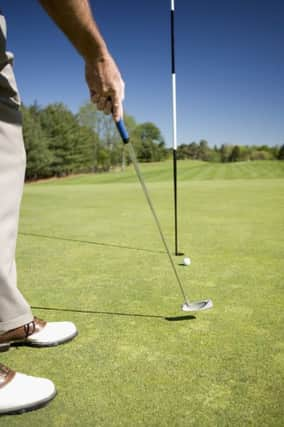'˜Player integrity' the key in golf's rules revolution


In a painstaking process that has taken five years, golfing gobbledigook has at long last been stripped out of the game’s rules, along with some of the ridiculous penalties, as part of a concerted bid to bring it into the 21st century instead of giving the impression that we are still stuck in the days of Old Tom Morris.
For starters, it is proposed the number of rules are reduced from 34 to 24, which is a welcome development on its own, but it’s some of the suggested changes to existing regulations that point to an upcoming revolution in the game at the same time as helping create a more acceptable pace of play.
Advertisement
Hide AdAdvertisement
Hide AdAmong the revisions under consideration are reducing the search time for lost balls from five minutes to three, leaving the flagstick in when putting on the green, dropping a ball from any height when taking relief, rather than shoulder-height as currently stipulated, and allowing players to repair spike marks on greens.
“It’s not quite a case of starting again, but it’s a fresh look, with all of the existing outcomes having been challenged,” David Rickman, the the R&A’s executive director, governance, told The Scotsman. “We were open-minded about the changes that we would contemplate. One of the major themes was to rigorously analyse the penalties that existed and to try and decide whether they are truly necessary. If not, then, and particularly if the corrective action could be done, let’s simply remove them.
“A crucial part of this was getting comfortable with relying on player integrity. Writing the rules for the honest player is something we do to a large extent already, but this is taking that extra step and recognising that, if someone wants to improve their lie already, they can do so. We are not trying to encourage that obviously but, on the other hand, if we assume that golfers will act with honesty and integrity and act reasonably, which I think golfers have a very good record of doing, then you can start making real progress on some of the rules that people find confusing and difficult to apply.”
Other proposals include a new “maximum score” in stroke-play, where a score is capped in a bid to encourage players to pick up while, in another effort to speed up play, “ready golf” is being encouraged, as is taking no more than 40 seconds for each stroke. While aimed more at Tour level, particularly in the ladies’ game, the banning of caddies from lining up players has also been suggested, with a six-month review of the proposals now underway as the R&A and USGA move towards implementing the new set of rules on 1 January, 2019.
“I hope by removing penalties and by simplifying the rules, people will be, as it were, less intimidated by the rules of the sport,” added Rickman. “The rules are there to help them play the sport, to give some structure to enable players to compete fairly with each other. They have an important part of play and we hope this makes them easier to use going forward.”
The proposals were warmly welcomed by some of the game’s leading lights. Tom Watson described them as “common-sense changes”, Tiger Woods praised “lots of thought and hard work to benefit the game” and Rory McIlroy said “making them (the rules) more modern to move with the times is good”.
However, American Daniel Berger called for “professional and amateur rules because I’m not getting a good vibe about some of these proposed changes” while Canadian Graham DeLaet hit out at the USGA on Twitter, saying: “There’s an old boys’ club based in New Jersey that have never hit a shot on Tour who make decisions that affect our families.”